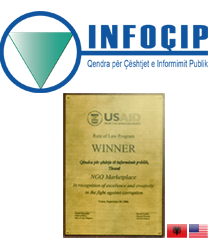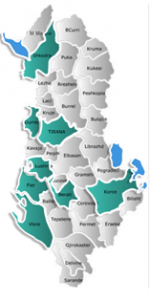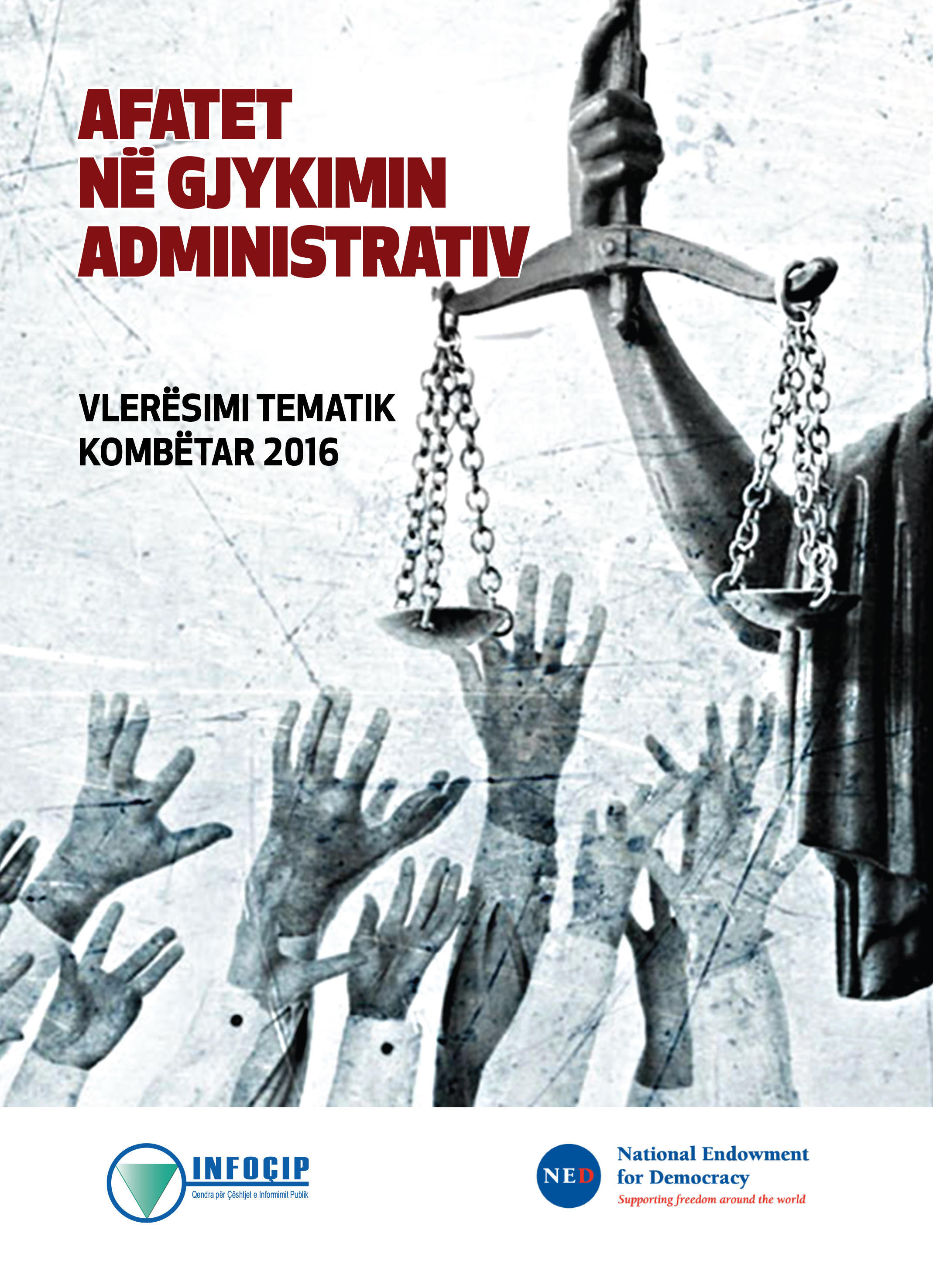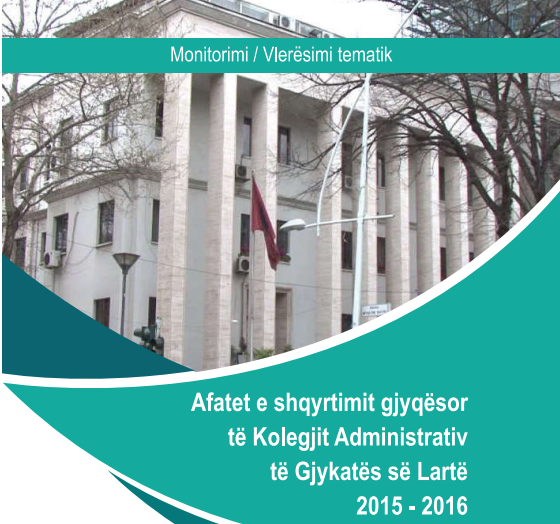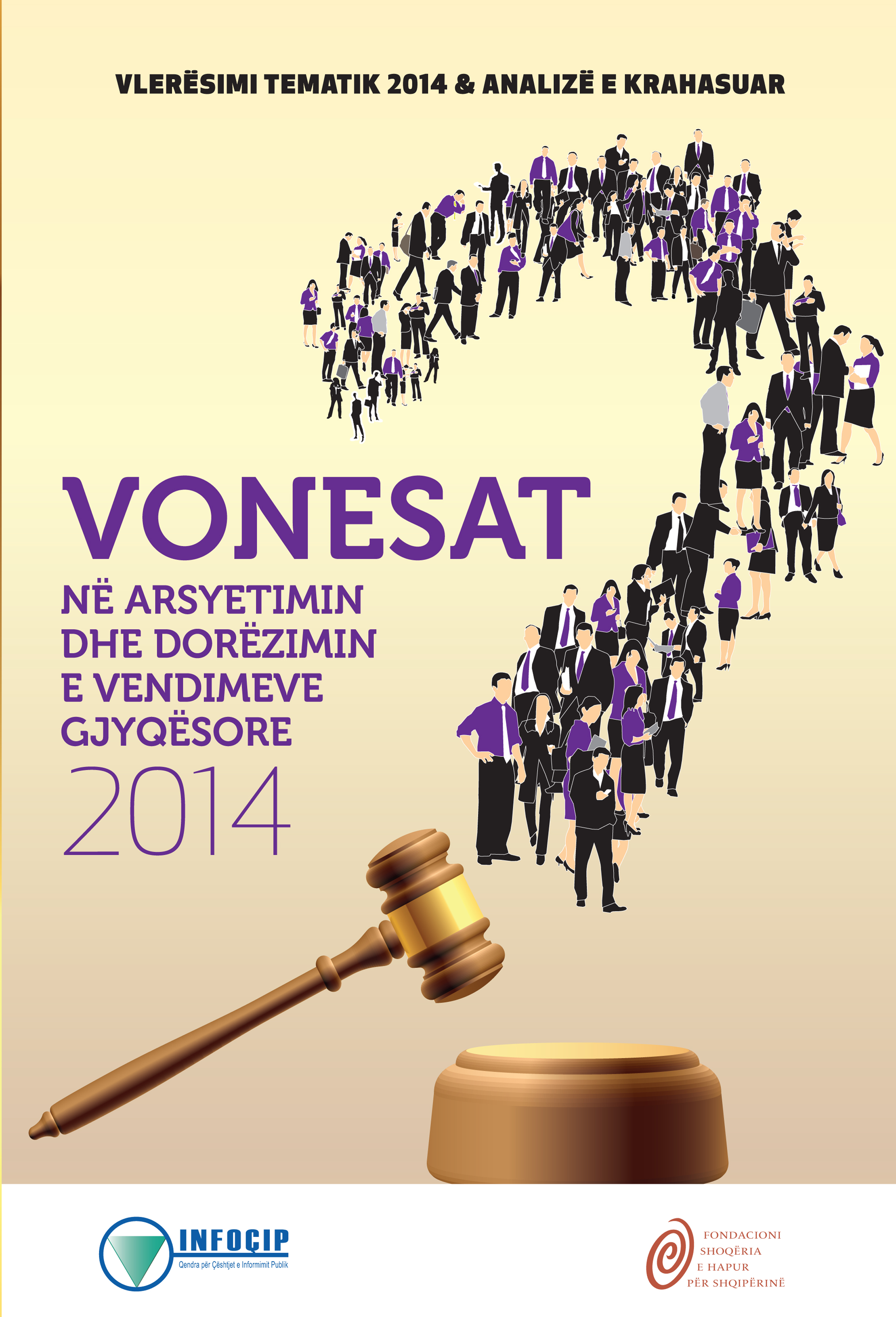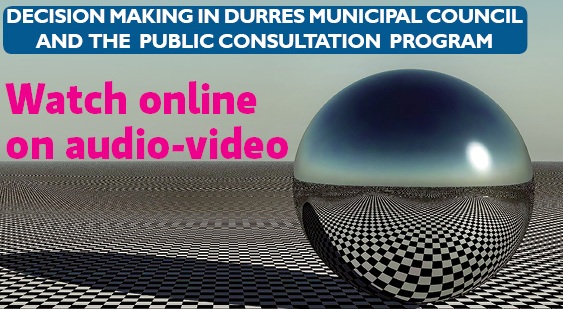Breathing Life into Freedom of Information Laws: The Challenges of Implementation in the Democratizing World – ALBANIAN CASE
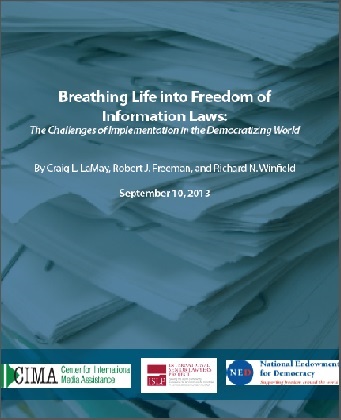 The Center for International Media Assistance, CIMA has recently released the research publication titled Breathing Life into Freedom of Information Laws: The Challenges of Implementation in the Democratizing World, by Craig L. LaMay, Robert J. Freeman, and Richard N. Winfield, all of whom have long experience in media law.
The Center for International Media Assistance, CIMA has recently released the research publication titled Breathing Life into Freedom of Information Laws: The Challenges of Implementation in the Democratizing World, by Craig L. LaMay, Robert J. Freeman, and Richard N. Winfield, all of whom have long experience in media law.
Most of the world’s 90-plus freedom of information laws are recent, enacted in the last two decades, and many are exemplary on paper. But many are also poorly implemented. This report is intended to be a practical, useful guide for stakeholders in national and local governments, the media, civil society and business, on how to make freedom of information laws work. The authors’ particular emphasis is on the role public officials and journalists must play in effectively breathing life into these laws, giving meaning to their democratic intent and legal guarantees.
The study includes Albania among other countries. An interview with Gerti Shella, Executive Director of Center for Publication, one the main FOI stakeholders in Albania, is included in the global research (pg.28).
GENERALIZED CONCLUSIONS OF THE RESEARCH…
Benign neglect of freedom of information laws, notably by public officials, is not an incurable disease. It is not inevitable that an FOI law’s promise of transparency will remain unfulfilled. It is not a given that FOI laws will continue to gather dust from disuse or abuse.With guarded optimism, this report challenges the notion of incurability. The testimony of the experts presented here who succeeded in breathing life into their FOI laws offers not only hope but also practical and realizable strategies that others can emulate. These strategies work. New technologies have changed the arithmetic of compliance and implementation. Before information technology and the Internet, in order to respond to a citizen’s FOI request, several government employees confronted endless paper files of official documents. The costly and time-consuming compliance process required these workers to search for, sort through, examine, photocopy, and send the hard copies of the documents to the requester. The cost and bureaucratic burdens occasioned by these processes partially explains the inertia of officialdom.To a very large extent , the Internet and information technology have changed that. Today that same request needs only a single employee to run a routine, paperless, comparatively warp-speed computer search, and in a matter of a few clicks, forward the requested documents electronically to the requester. Indeed the report shows the practical and cost-saving benefits where national and local governments proactively post on their websites all manner of documents and information that would otherwise have required individual, manual responses to citizens’ FOI requests. This represents another instance where information technology and the Internet make a virtue out of necessity.There are other ways that implementing FOI laws can save government money. When vendors can learn what a successful bidder offered the government, and can make a better deal for the government, the taxpayers win.Corruption, that “stealth tax” that produces no public benefits but costs dearly, finds its mortal enemy in the transparency produced by a robust FOI environment.Such an environment features local and national public officials who are trained to know the law, have obtained adequate budget appropriations, have organized their offices and operations to comply with the law, have developed internal procedures, have trained their staffs, and have committed themselves to perform their public duties.
That environment features leaders of civil society, the media, and business who are trained to know the law;who recognize that they and all citizens will benefit if it is put to work; who recognize that it is not self-executing;who agitate, train, and press national and local public officials to develop the political will to make it work; and who publicly support budget appropriations to finance its operations. That environment features oversight authorities, ombudsmen, and information commissioners who are trained to know the law, act independently and impartially, and who display their commitment to making the law work effectively and fairly
Read Report in PDF Format
Read Highlights of the Report
LAST RELEASED PUBLICATION
MONITORING REPORT
Recent reports/studies
Partners / Donors
Local Branches
- Citizens' Transparency Office, Durrës (19)
- Citizens' Transparency Office, Korça (9)
- Election Situation Chamber (11)
- JUDICIARY (1)
- NED (11)
- www.vendime.al (5)
Foto lajm

- CPII anounces the monitoring result for Durres Municipal Council. It must be re-elected
Where we work

